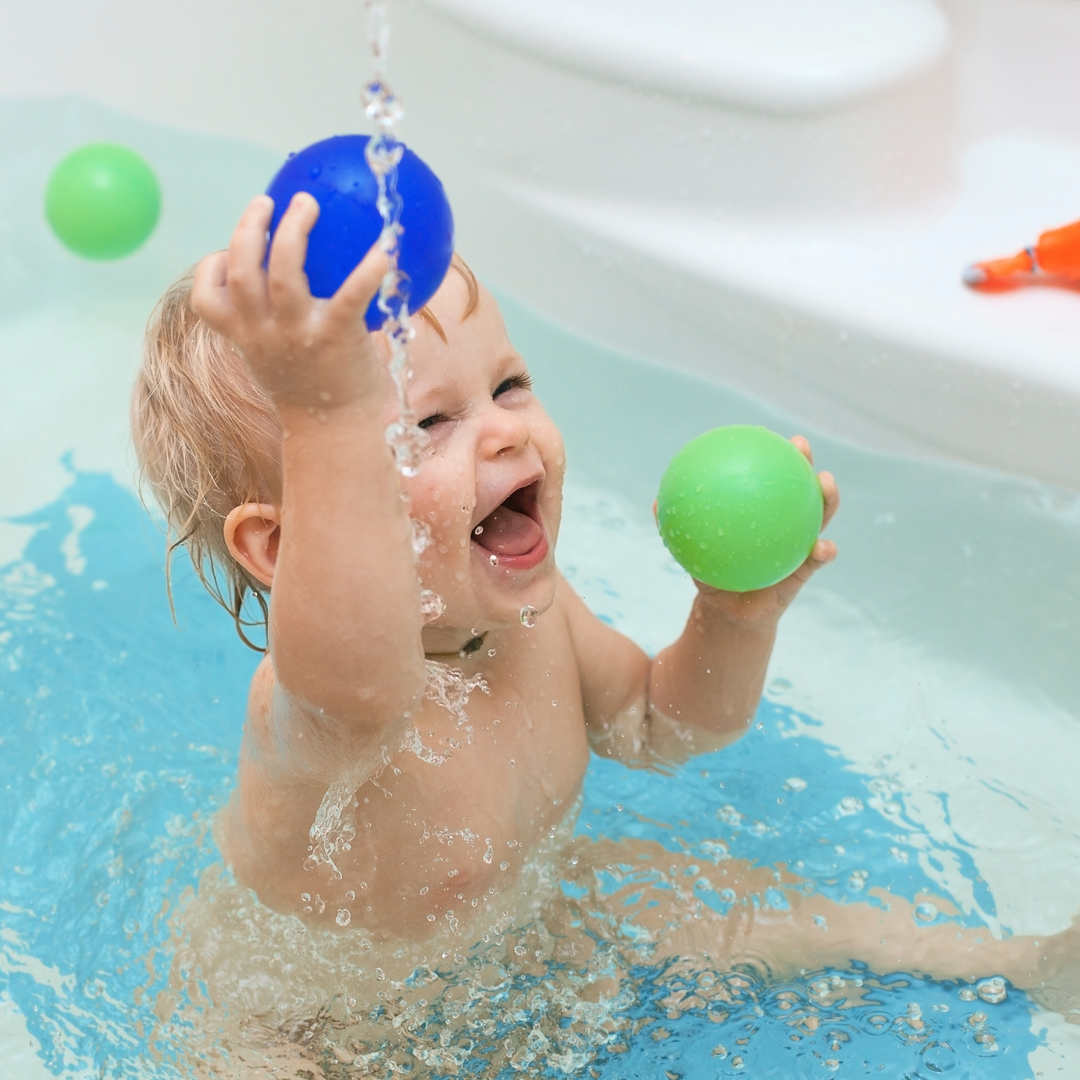
Enhancing Cognitive Skills in the Bath: The Role of ESDM therapy in Sydney
Bath time is not just for getting clean; it’s also a wonderful opportunity to help young children develop cognitive skills. Through playful and engaging activities, children can enhance their thinking, problem-solving, and language abilities. At OneOnOne Children’s Therapy, located in Bondi Junction and Mascot, we use the Early Start Denver Model (ESDM) to support cognitive development in young children. Here are some fun and simple ways to turn bath time into a cognitive skill-building adventure.
1. Sorting and Classifying
Use a variety of bath toys like ducks, boats, and fish. Encourage your child to sort and classify these toys by type, color, or size. For example, ask them to group all the ducks together or separate the blue toys from the red ones. Sorting and classifying help children understand similarities and differences, which are important cognitive skills.
2. Counting and Number Recognition
Bath time is perfect for practicing counting and number recognition. Use bath crayons to write numbers on the tub or tiles. Ask your child to count their toys, bubbles, or the number of times they splash. Introduce simple math concepts by asking questions like, “How many ducks are there if we add one more?”
3. Language Development
Enhance your child’s language skills by talking about what you’re doing and what they’re playing with. Introduce new vocabulary words related to bath time, such as “suds,” “rinse,” “drain,” and “float.” Singing songs and reciting rhymes can also help with language development. For example, sing “Rubber Duckie” or make up your own silly bath-time songs.
4. Science Experiments
Teach your child about sinking and floating using different bath toys and household items. Ask them to predict which objects will sink and which will float, then test their hypotheses. This activity encourages critical thinking and introduces basic scientific concepts.
5. Water Play and Measurement
Introduce concepts of measurement and volume with water play. Provide different-sized containers and let your child fill and pour water between them. Discuss which containers hold more or less water, and use a plastic measuring cup to show standard measurements like cups, pints, and quarts. This helps children understand volume and measurement in a hands-on way.
6. Imaginative Play
Encourage your child’s imagination by creating stories and scenarios with their bath toys. Pretend the bath is an ocean, and the toys are sea creatures on an adventure. Ask open-ended questions to spark their creativity, such as, “What do you think the fish is looking for?” or “Where do you think the boat is sailing to?” Imaginative play helps children develop cognitive skills like storytelling, problem-solving, and understanding different perspectives.
7. Fine Motor Skills
Bath time is an excellent opportunity to develop fine motor skills. Provide toys that require squeezing, pouring, or manipulating, such as squeeze toys, bath squirters, and cups. Encourage your child to pour water into different containers or use a sponge to squeeze out water. These activities help strengthen the small muscles in their hands and fingers, which are important for tasks like writing and buttoning clothes.
8. Pattern Recognition
Use bath crayons or foam shapes to create patterns on the side of the tub. Start with simple patterns like ABAB (duck, boat, duck, boat) and gradually make them more complex. Ask your child to continue the pattern or create their own. Recognizing and creating patterns is an important cognitive skill that lays the foundation for math and logical thinking.
9. Letter and Shape Recognition
Use foam letters and shapes to introduce your child to the alphabet and basic shapes. Stick them to the side of the tub and ask your child to identify them. You can also spell out simple words or names and encourage your child to recognize and name the letters. This activity helps with letter recognition, phonics, and early reading skills.
10. Following Directions
Bath time can also be a great time to practice following directions. Give your child simple instructions, such as “Pour water into the red cup,” or “Place the yellow duck next to the green boat.” Following directions helps improve listening skills, memory, and the ability to understand and execute tasks.
11. Sensory Play
Engage your child’s senses with different textures and materials. Add bubble bath, bath salts, or sponges to create varied sensory experiences. Talk about how things feel, smell, and look. Sensory play helps children make connections between their senses and the world around them, enhancing cognitive development.
12. Storytelling with Bath Books
Waterproof bath books are a fantastic way to introduce storytelling during bath time. Read the stories together, ask questions about the characters and plot, and encourage your child to tell their own stories using the pictures. Storytelling helps develop comprehension, sequencing, and vocabulary skills.
Conclusion
Bath time is a unique and enjoyable opportunity to help young children develop cognitive skills. By incorporating sorting, counting, language development, science experiments, imaginative play, fine motor activities, pattern recognition, letter and shape recognition, following directions, sensory play, and storytelling, you can turn this daily routine into a rich learning experience.
We’re Here to Support You
At OneOnOne Children’s Therapy, located in Bondi Junction and Mascot, we believe that every child deserves the opportunity to grow and thrive. Our clinics are not just spaces for therapy – they are places where children can discover their strengths, overcome challenges, and reach their full potential. Our Certified ESDM Therapists provide a holistic approach to paediatric therapy and early intervention, addressing the unique needs of each child.
Reach Out for Support
If you’re concerned about your child’s cognitive development or want to learn more about how our ESDM program can help your child, OneOnOne Children’s Therapy is here to help. Call our Bondi Junction and Mascot clinics at (02) 80657837 or email us. You can also book a free 30-minute phone call with us to discuss how we can support your child’s unique journey.
